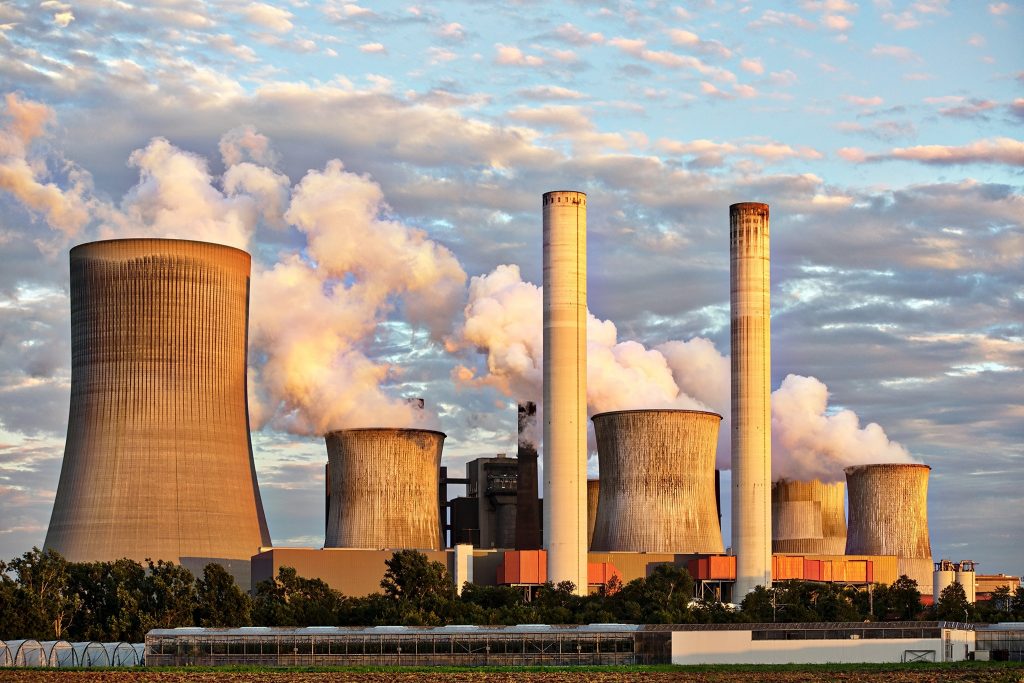
How the energy crisis is pushing nuclear power in the EU taxonomy
Author: Djego Abedinaj
The European Union (EU) energy crisis has reopened the debate for alternative energy supply. As the EU and its member states have recognized that the consequences of the Ukraine war will not be short-term, alternative energy sources, including nuclear energy, are being taken into consideration. Nuclear power has not been an option for some time, but is soon likely to be part of the EU taxonomy and open the door for investment. However, after a couple of months of discussions, the path of nuclear power towards taxonomy has been subject of divergent positions on how to address the urgent need for alternative energy supply, and the pressure for the political credibility of the Green Deal.
The role of the EU taxonomy on climate ambition and nuclear power
In early 2020, the EU taxonomy entered into force as a classified system of sustainable activities that promote green investments and give a clear signal to the market on what is considered a green investment. The aim of the taxonomy is to scale up sustainable investment and implement the European green deal by guiding the market toward sustainable economic activities, and innovative clean technologies, and to help companies and investors to have a common ground when investing in projects and economic activities.
In March 2022, the European Commission (EC) adopted a Complementary Climate Delegated Act (CCDA) to include nuclear power in its taxonomy. The “green light” to the nuclear power investment might signal a tough decision that comes as a necessity to meet the targets and pledges of the Paris Agreement by being climate neutral by 2050. This was not welcomed at all by civil society and European Parliament (EP), claiming the “green washing” of nuclear power.
The EU taxonomy has overall had a consensus about being strict on requirements and based on scientific data. However, the CCDA has raised concerns about undermining the credibility of taxonomy and politicizing this issue, and potentially may be the cause of fragmentation among EP political groups. Even though the EC argued that the proposal comes as an alternative option to facilitate green investment in gas and nuclear power during challenging times, in July 2022, the EP was reluctant on labelling nuclear power as part of the EU green taxonomy.
Divergent positions among the EU members
The EC proposal comes at a moment of energy crisis. Ahead of winter, the impact of the inflation of energy prices in the EU on energy demand seems to be challenged. Commissioner McGuiness states that nuclear power “could make a contribution to the difficult transition to climate neutrality under strict conditions and phase-out periods”. France, producing roughly 55% of the energy by nuclear plants, is significantly pushing the idea of nuclear energy as a pragmatic path to secure energy sovereignty.
Instead, another group of countries led by Germany, and followed by Austria, Luxembourg, Denmark, Portugal and Spain is counter-opposing the idea of integrating nuclear power into the EU taxonomy. Germany will complete a nuclear shutdown by the end of 2022. As an alternative, Germany has open the doors for the natural gas to help overcome the crisis, and arguably considering a green energy source.
The main concerns about nuclear energy are related to security issues and the challenges to manage nuclear waste. In addition, nuclear power is costly compared to renewable energy that has become cheaper over the last couple of years, securing the same time economic and environmental feasibility. Furthermore, building new nuclear power plants will take roughly 10-15 years, which will not help in short and medium-term needs for energy and shift the focus of the energy transition.
The future of nuclear power on EU taxonomy
To remain coherent, the EU will have to bridge the new taxonomy with its other ESG frameworks in line with these new disclosures, adding to an already challenging list of requirements for companies being asked to become more granular in their reporting. In addition, the EC has asked the European Supervisory Authorities (ESA) to suggest changes regarding companies’ disclosure of fossil fuel and nuclear activities in pre-contractual documents, websites, and periodic reports, under the Sustainable Finance Disclosure Regulation (SFDR).
Despite early resistance, the EP did not object to the labeling of nuclear power as green investments, and it is very likely that the CCDA will enter into force by 2023. According to the EU officials, the issue is not whether to use nuclear energy or not, because in the near future nuclear will be part of the energy supply. Instead, the issue is whether the EU should have lost its competitiveness in labeling nuclear power as green energy. International Energy Agency (IEA) reports suggest that nuclear power should be taken into consideration in order to accelerate climate neutrality, and without nuclear power, the energy transition will be much more difficult.
To sum up, making pragmatic policy shifts in moments of crisis may help to overcome short-term needs, however, the EU should make sure that certain decisions would not undermine the political credibility of climate ambition.
Short Bio Djego Abedinaj is a Research Fellow at the Institute for Advanced Sustainability Studies, Potsdam, supported by the German Federal Environment Foundation (DBU). He holds a Master’s degree in European Studies from the University of Siena, Italy, and a Bachelor’s degree in International Relations and Security Studies, from the European University of Tirana, Albania. His research interest covers the EU trade and climate policies, global climate governance, international institutions.
Djego Abedinaj is a Research Fellow at the Institute for Advanced Sustainability Studies, Potsdam, supported by the German Federal Environment Foundation (DBU). He holds a Master’s degree in European Studies from the University of Siena, Italy, and a Bachelor’s degree in International Relations and Security Studies, from the European University of Tirana, Albania. His research interest covers the EU trade and climate policies, global climate governance, international institutions.
Twitter https://twitter.com/abedinaj_diego
Linkedin https://www.linkedin.com/in/djego-abedinaj-8438a4185/
References
Bloomberg (2022) EU lawmakers remove last hurdle to label gas and nuclear as green, 6 July. https://www.bloomberg.com/news/articles/2022-07-06/eu-lawmakers-remove-last-hurdle-for-gas-nuclear-as-green, last accessed 16 November 2022, last accessed 14 November.
European Commission (2021) Complementary Delegate Climate Act to accelerate decarbonisation, DG for Financial Stability, Financial Services and Capital Markets.
European Commission (2020) Regulation (EU) 2020/852 of the European Parliament and of the Council, of 18 June 2020 on the establishment of a framework to facilitate sustainable investment, and amending Regulation.
Euroactiv (2022) EU puts green label for nuclear and gas officially on the table, https://www.euractiv.com/section/energy-environment/news/eu-puts-green-label-for-nuclear-and-gas-officially-on-the-table/ 2 February, last accessed 13 November.
Euroactiv (2022) Cross-country alliance seeks to block nuclear and gas from EU green taxonomy, 10 June, https://www.euractiv.com/section/energy-environment/news/cross-party-alliance-seeks-to-block-nuclear-and-gas-from-eus-green-taxonomy/ , last accessed 15 November.
Financial Times (2022) Challenges against EU label “green” for gas and nuclear energy steps up, 10 October, https://www.ft.com/content/42320458-dfeb-4f5e-9655-aba281cef662 , last accessed 14 November 2022.
Germany Environmental Agency (2022) No greenwashing on Anti-Greenwashing Taxonomy, Comment on Draft Commission Delegated Act on the Inclusion of Nuclear Power and Fossil Gas in the EU Taxonomy, 11 January.
IAEA – International Atomic Energy Agency (2017). Nuclear Power for Sustainable Development. International Atomic Energy Agency, 2017. Online available at https://www.iaea.org/sites/default/files/np-sustainable-development.pdf .
Image credits: free to use under the Creative Commons Zero license

0 Comments